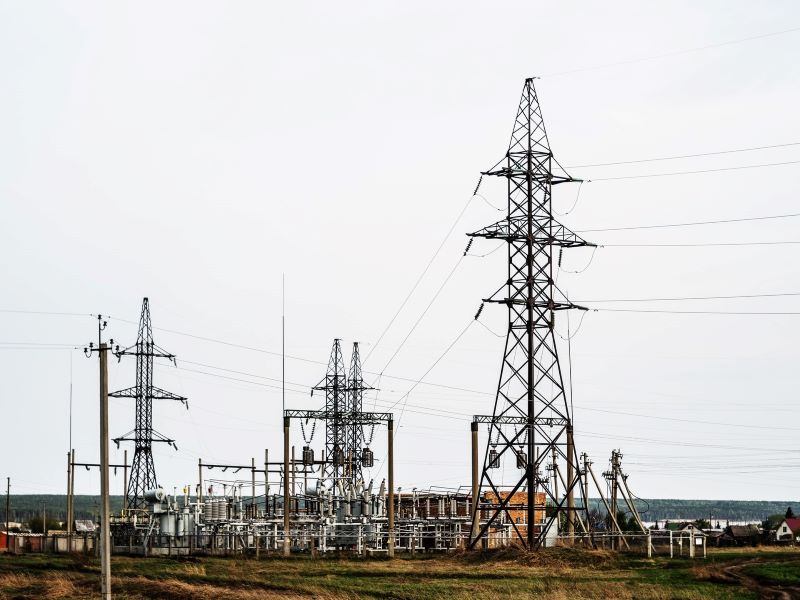 Electricity Tariff
Electricity Tariff Govt introduces Time of Day (ToD) Tariff and simplification of smart metering rules; 20% less tariff during solar hrs, 10%-20% higher during peak hrs
New Delhi: Electricity tariffs will now vary according to the time of day as the Centre has made changes to the prevailing power tariff system.
“Rather than being charged for electricity at the same rate at all times of the day, the price you pay for electricity will vary according to the time of day,” the Ministry of Power said in a statement on Friday.
The Centre has introduced the Time of Day (ToD) Tariff, and the rationalization of smart metering provisions—two changes to the prevailing power tariff system, through an amendment to the Electricity (Rights of Consumers) Rules, 2020.
What is ToD Tariff system?
Under this system, the tariff during solar hours (duration of eight hours in a day as specified by the State Electricity Regulatory Commission) of the day shall be 10%-20% less than the normal tariff, while the tariff during peak hours will be 10 to 20 percent higher.
ToD tariff would be applicable for Commercial and Industrial consumers having Maximum demand of 10 KW and above, from 1st April 2024 and for all other consumers except agricultural consumers, latest from 1st April 2025.
Time of Day tariff will be made effective immediately after installation of smart meters, for the consumers with smart meters.
Union Power and New & Renewable Energy Minister R. K. Singh said that the ToD is a win-win for consumers as well as the power system.
“The TOD tariffs comprising separate tariffs for peak hours, Solar hours and normal hours, send price signals to consumers to manage their load according to the tariff. In order to reduce their power costs – planning more activities during solar hours when power costs are less,” he said.
The power minister emphasised that with the awareness and effective utilisation of the ToD tariff mechanism, consumers can reduce their electricity bills.
“Since solar power is cheaper, the tariff during the solar hours will be less, so the consumer benefits. During non-solar hours thermal and hydropower as well as gas-based capacity is used – their costs are higher than that of solar power – this will be reflected in Time of Day Tariff,” he stated.
Further, this will help in better grid integration of Renewable Energy sources thereby facilitating faster energy transition for India.
“The ToD tariff will improve the management of renewable generation fluctuations, incentivize demand increase during the periods of high RE generation hours and thereby increase grid integration of larger quantity of renewable power,” he said.
Most of the State Electricity Regulatory Commissions (SERCs) have already implemented ToD tariffs, for large Commercial and Industrial (C&I) category of consumers in the country, the power ministry said.
With the installation of smart meters, the ToD metering at the domestic consumer level will be introduced as per Tariff Policy mandate.
Time of Day (TOD) tariff, is recognized globally across electricity industries, as an important Demand Side Management (DSM) measure which is used as a means of incentivizing consumers to shift a portion of their loads from peak times to off-peak times, thereby improving the system load factor by reducing the demand on the system during peak period.
Various statutory provisions already exist to enable and promote the implementation of ToD tariff (i.e. Tariff Policy, 2016, Electricity Act, 2003 and National Electricity Policy, 2005), it added.
Smart Metering
The government has also simplified the rules for smart metering. After the installation of a smart meter, no penal charges will be imposed on a consumer based on the maximum demand recorded by the smart meter for the period before the installation date, according to the new rules.
The load revision procedure has also been rationalized in a way that maximum demand will be revised upwards only if the sanctioned load has been exceeded at least three times in a financial year.
Moreover, smart meters will be read remotely at least once a day and the data will be shared with consumers in order to enable them to take informed decisions about the consumption of electricity.
The government introduced the Electricity (Rights of Consumers) Rules, 2020 on December 31, 2020, with the belief that power systems should prioritize serving consumers and that consumers have the right to receive reliable and high-quality electricity services.
These rules aim to ensure timely provision of new electricity connections, refunds, and other services.
Service providers who deliberately ignore consumer rights may face penalties, while compensation will be paid to consumers who have been affected.
According to the power ministry, the current amendment to the Rules is a continuation of the measures taken by the government, to empower power consumers, to ensure 24X7 reliable electricity supply at affordable cost, and to maintain a conducive ecosystem for investment in the power sector.
Support Our Journalism
We cannot do without you.. your contribution supports unbiased journalism
IBNS is not driven by any ism- not wokeism, not racism, not skewed secularism, not hyper right-wing or left liberal ideals, nor by any hardline religious beliefs or hyper nationalism. We want to serve you good old objective news, as they are. We do not judge or preach. We let people decide for themselves. We only try to present factual and well-sourced news.







